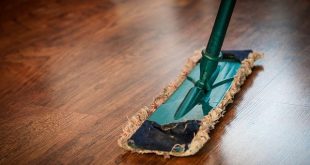Hay fever season is well and truly in full swing. Usually in the season hits its peak from mid-March to September. Hay fever is an allergic reaction to pollen that can affect your eyes, nose, mouth, and throat. People are allergic to all the different types of pollen – grass, weed, flowers, trees and sometimes it feels like it is never-ending.
Despite the fact that there is no cure for hay fever, here are some top tips on how to alleviate your symptoms and survive the pollen season:
Medication
Obviously, you need to seek medical guidance from your GP. Advice suggests taking allergy medication several weeks before the pollen season started. This way you can start to build up a barrier to the pollen. A place like Oxford Online Pharmacy can offer lots of products that will help build protection against hay fever. There’s a whole host of products that can offer relief to hay fever symptoms – nasal sprays, eye drops, daily tablets, wipes, balms, and more. There are also many types of hay fever medication, some work great and others won’t work for you. Your body can also get used to a certain medication so you may need to change this the following year.
Local Honey
This is one most people have heard of, but many do not try. Local honey is made from the pollen of local flowers. There’s no scientific evidence to suggest this helps with hay fever and is successful, but the myth is that the bees creating the honey from local flowers. Obviously, the local flowers will be the ones potentially causing the hay fever symptoms. Consuming a couple of teaspoons of local honey each day could help desensitize your body to hay fever symptoms. It is always worth a try for anything that may help because hay fever can truly control your life in the peak-pollen months.
Hair and Glasses
Keep your hair tied back. Hair can attract and trap pollen so having it down can mean it’ll brush regularly over your face and eyes. We all know how that can aggravate the symptoms of hay fever. Wearing glasses or sunglasses can offer extra protection and a bit of a shield from pollen floating directly into your eyes. Glasses that are wrap-around style are perfect as they have the biggest area of protection available, but any type can help keep the pollen away from entering your eyes.
Vaseline or Allergy Balm
Rub some Vaseline or Allergy Balm around your nostrils and carefully around the eye bone to help create a barrier from the pollen. It works by trapping the pollen particles before they reach your eyes or be breathed into your nose. Some allergy balms smell delicious but a simple Vaseline works perfectly and you can it in a larger pot. It may be a bit messy and you’ll have to reapply regularly for the best protection, but it’s said by many that it’s really effective prevention.
Windows
Where possible, try to keep your windows closed as much as you can. This will help to prevent the pollen from blowing inside your home and trapping itself on all your soft furnishings. It can be easy to see the difference in symptoms between when you have your windows closed or open. Obviously, this can be understandably hard to achieve in the warmer peak-pollen summer months but you will certainly reap the benefits if you do manage to keep them closed. Purchasing an air-purifying machine can help assist with better quality indoor air for allergy sufferers.
Shower Daily
Personal hygiene is always important, however, when you are an allergy sufferer it extra to regularly wash. The best time to shower is right at the end of the day to ensure you remove all pollen particles that will collect in your hair and skin throughout the day. There are also some brilliant allergy wipes you can use during the day to keep refreshed from pollen on your face and help prevent the pollen from getting into your eyes and nose.
Washing Clothes, Towels, and Bedding
It goes without saying to wash your clothes regularly. It does the obvious of cleaning your clothes from the pollen but it is actually the drying part of laundry that is the most important in helping to reduce hay fever symptoms. As tempting as it is to hang your clothes outside on a warm summers’ day, doing this will mean your clothes get covered in pollen and cause irritation. Imagine drying your skin and face with a towel that’s covered in pollen or laying down to bed in a bed full of pollen? Horrendous. Refrain from hanging it outside and either tumble dry or hang on an indoor clothes horse with the windows closed to keep your clothes as fresh and allergy-friendly as possible.
Pollen Alerts
A simple weather app or website shows you the daily pollen forecast. You can set notifications to alert you regularly so that you can prepare for the day or week ahead.
These top tips used together will be a very useful tool kit to keep your hay fever symptoms under control and able to live through a comfortable hay fever season. What are your miracle cures to help your hay fever symptoms?
Disclosure: This is a collaborative post.
 Jodie Alice Fisher A personal blog from the heart of a young Mum
Jodie Alice Fisher A personal blog from the heart of a young Mum




